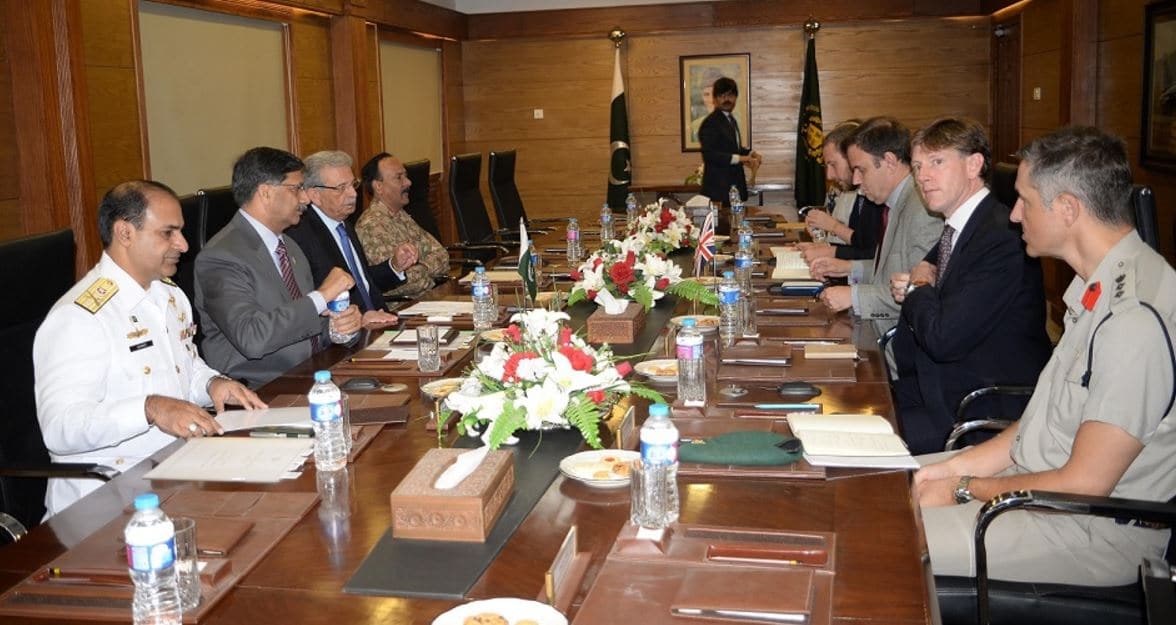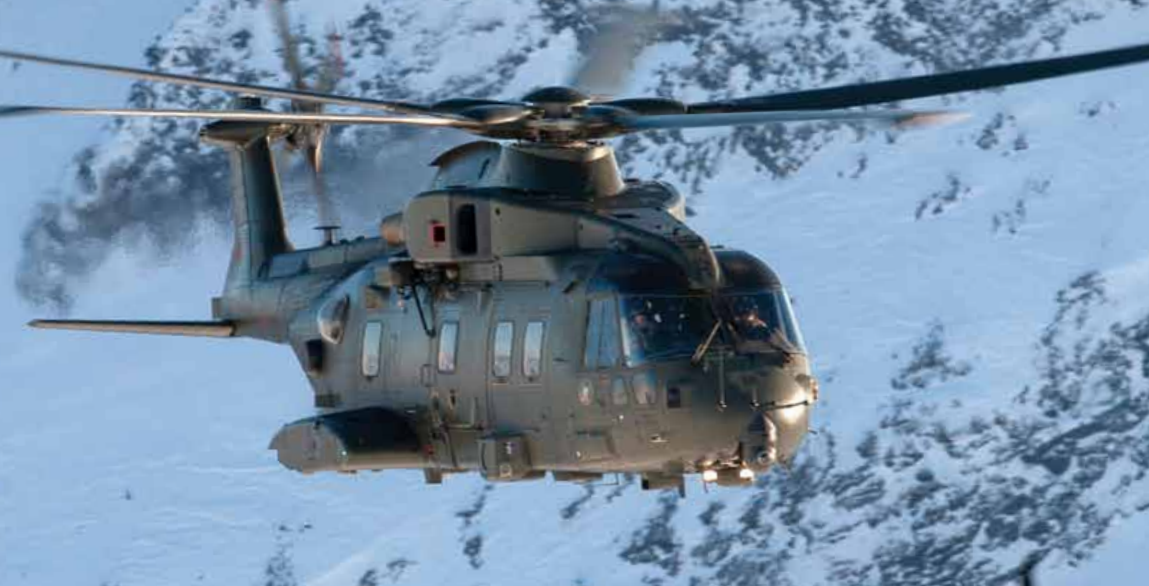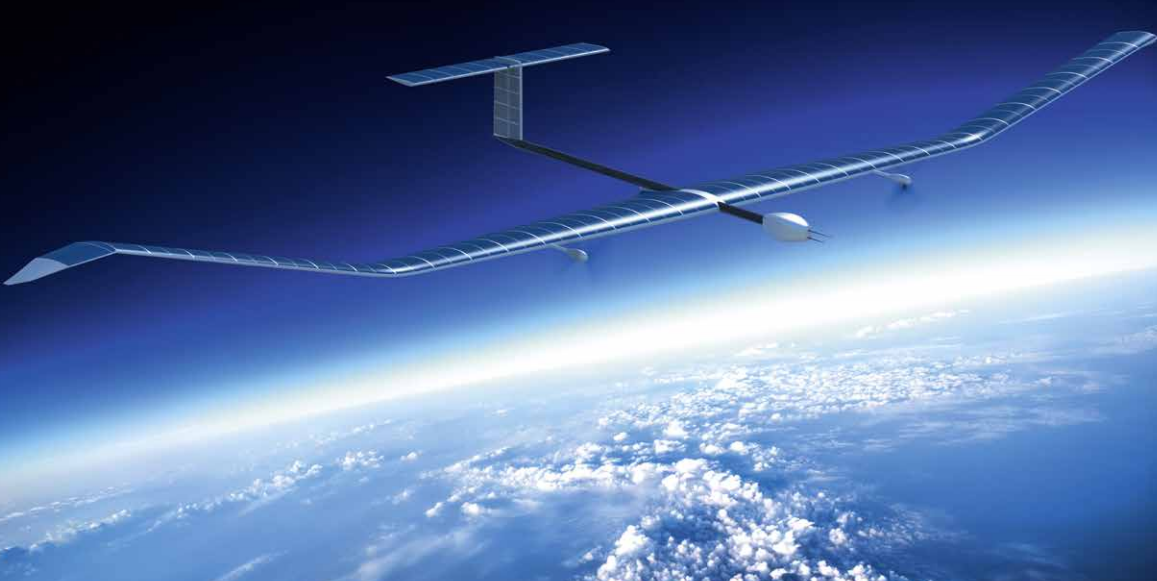2262Views 9Comments

Pakistan and UK relaunch Defence Technical Cooperation agreement
In his official visit to the U.K. to attend the 2017 Defence and Security Equipment International (DSEI) in mid-September, the Pakistani Minister of Defence Production (MoDP) Rana Tanveer Hussain called for growth in defence ties between Pakistan and the U.K.
On September 19, the ministry announced that the MoDP met a British delegation led by the State Minister for Trade Policy Greg Hands in Rawalpindi. According to the statement, the two sides relaunched an earlier memorandum-of-understanding (MoU) on Defence Technical Cooperation. It added, “the two sides agreed to enhance cooperation in all fields including defence production.”
At DSEI 2017, the MoDP had visited several British exhibitors, among them Vector Aerospace (which is in the process of refurbishing Sea King helicopters for the Pakistan Navy), Blighter Surveillance Systems, Ultra Electronics and JANKEL. The MoDP also engaged with the CEO of Marshall Aerospace and Defence Group.
The Defence Technical Cooperation MoU was originally signed in 2005 and had reportedly (via Dawn News) called for “new avenues in the area of defence cooperation between Pakistan and the UK and facilitate procurement of defence equipment and transfer-of-technology.”
There have been no big-ticket sales to Pakistan since the transfer of Type 21 frigates in 1993-1994. Today, the U.K. industry’s involvement in Pakistan is primarily driven by commercial activities done by third-party entities in Italy and Turkey. For example, the Turkish firm STM – which is responsible for managing the upgrade of the Pakistan Navy’s Agosta 90B submarines – selected the Kelvin Hughes SharpEye radar.
Notes & Comments:
Even under the ambit of the relaunched MoU, it is not known if Pakistan will push for big-ticket items from the British defence industry. However, based on the companies the MoDP had engaged at DSEI, Pakistan may be interested in electronics, refurbishment and upgrade services, consultancy and vehicles.
Programs such as the Light Armed Vehicle Assault (LAVA) or Medical Recovery Vehicle could see Pakistani entities draw on British industry support in design and complex systems (e.g. engines). For an analogous example, consider the Emirates’ NIMR Automotive, which had contracted the U.K.-based HORIBA MIRA to design and develop the NIMR Rapid Intervention Vehicle (RIV).
Pakistan’s efforts to upgrade Ordnance Factories, Heavy Industries Taxila, Pakistan Aeronautical Complex, Karachi Shipbuilding & Engineering Works and other entities could spur commercial opportunities for British engineering firms, manufacturing and industrial suppliers and defence consultants.
In terms of the viability of marketing big-ticket items to Pakistan, this will have to overcome two critical challenges. First, Pakistan’s relatively limited fiscal means, which will necessitate export credit to back big-ticket hardware sales. Second, managing the concerns of regional imbalances resulting from arms sales. These factors will likely limit any growth in U.K.-Pakistani commercial defence ties to essentially expansion in current initiatives, such the sale of specific subsystems (e.g. radars) and services (e.g. refurbishment).
The Pakistan Navy might have been a reasonable avenue for engagement, especially with regards to the Type 31e frigate, which the British government is openly positioning as an affordable option to overseas cost-sensitive markets. However, the Pakistan Navy proceeded with China and Turkey for its future needs.



9 Comments
by John John Slade
That’s good news for Pakistan. Hope both Pakistan and UK will continue develop their defense in further future.
by sami shahid
What about BAE systems ? BAE systems is producing almost everything that Pakistan requires. I guess now we should go for Russian,British & Turkish weapons & equipment.
by Steve
UK big ticket items are expensive for us. Better to collaborate on learning to build or buying subsystems, especially from BAe. They have huge capabilities and UK is keen to develop JV after Brexit. Composites, radars and engine technology are gold plated areas of potential. Just need a commited competent polical setup.
by Steve
UK/Canadian Bombardier just got hammered with 220% USA import duty on its C series passenger jets. For those who don’t know they make the famous Learjet business jets. The case was brought by Boeing. The Delta airlines buy of >40 narrow body jets is in danger. May and Trudeau are seriously p****d off. May is particularly incensed that personal phone calls (sans hugs lol) to Trump made no difference. Trudeau put Canadian F-18 buy on hold as retaliation. Relations even between historic allies can be testy at times and there is no need for general depression if US refused F-16 subsidies to Pakistan for instance. This is also on eye opener for people who think they can get free goodies and total tech transfer of high end products out of USA under Trump.
by Steve
May just threatened Boeing with cancellation of the 50 Apache contract. The plot thickens!
by Rizwan
Pipe dreams. When push comes to shove, the British are no different than the Americans. They can be easily persuaded by the US to not sell us anything they do not want us to have.
by SP
Type 31 is an inferior frigate to the normal RN frigates and costs £100 million less. The project is more about safeguarding shipbuilding and jobs rather than providing cutting edge technology.
by Bilal Khan
I listed the Type 31e for a few reasons.
It’s an unlikely prospect to be sure, but even a baseline version would fit with the PN’s apparent surface combatant strategy, which is to police the EEZ and SLOCs in peacetime and maybe provide littoral ASW in wartime.
The onus of offensive operations and interdicting a MEZ attempt on the SLOCs is going to fall on the Hangor (II)-class AIP submarines. Even with Chinese credit as a factor, the PN could have split the order between submarines and highly capable frigates, but it went all-in on the submarines. It was a rational decision. ASW is tougher to do than AShW, and with limited resources, you’d want to invest in the area that gives your opponent more trouble.
However, I wouldn’t expect cutting-edge or highly capable surface warships from the PN. If they have a relatively limited wartime role (e.g. guarding littoral waters), then the emphasis will be on cost savings and performance in peacetime operations, e.g. policing EEZ and SLOCs, coalition support work, exercises, etc.
In this respect, the PN would probably be OK with a skim Type 31e with a 76 mm main gun, flight deck and helicopter hangar (aka glorified ocean patrolling vessel), especially if it’s on offer with export credit.
by Imran
Area of intrest for pakistan should be either type23 frigate which is a very good platform and recently underwent for extensive moderanaisation and soon going to retired and replace with type 26 frigate or engine for jf17 eurojet2000.